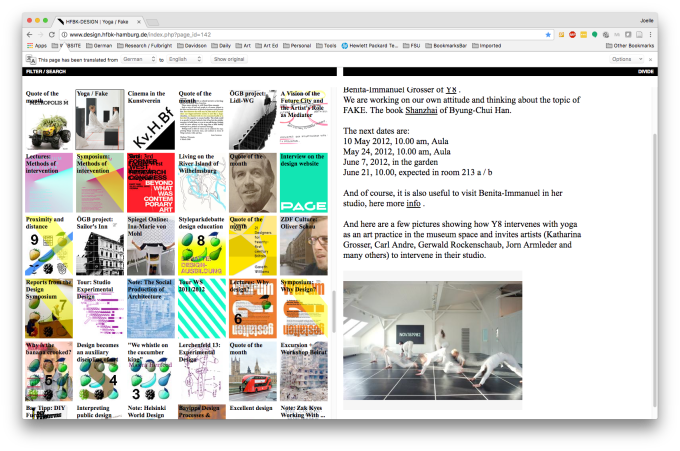- HFBK Archive of Recent Design Classes
- 100 days, Documenta as a Museum of 100 days
- 100 Days of a Presidency
- 100 Days Campaign, a publicity stunt by Amnesty International
- 100 Days' Offensive, Allied offensive on the Western Front WWI
- 100 Days' Reform, social reform in late imperial China
107 days left in my Fulbright and I will try to blog 100 posts.
Blogging felt relevant 10 years ago. As this Atlantic article explains, “Blogging — I mean, honey, don’t even say the word. No one actually blogs anymore, except maybe undergrads on their first week of study abroad.”
But for me, right now, it’s an easy lifeline to keep me productive during this challenging Fulbright. I have been working hard to get a Fulbright since 1995, when I took an independent study with Micaela Amato at Penn State with the sole purpose of getting one, and here I am 22 years later, 3-country Fulbright in hand. It has moved my whole family from sunny North Carolina (after we just transitioned there after my husband’s Fulbright to Austria) to a cold, rainy Hamburg where we live on top of each other, all sick with the flu. Surely it will get better, but in the meantime, this is my small goal: publish 100 posts.
This week in summary:
- First class at HFBK. I had no voice because of the flu. Only 6 students showed. The projected-movie-as-back-up plan could not be seen because of broken curtains. The students explained that they are not graded and will have to miss weeks here and there for travel. I am in culture shock but curious. It is a well-known art school. Wim Wenders, Thomas Demand, Marina Abramovic and many other well-known artists teach or have taught here. The art on view here last June 2016 was impressively high quality. Clearly they accomplish much without energy given to compulsory attendance or grades.
- Although our sick family-of-3 feels on top of each other in this city apartment, the Gästehaus der Universität Hamburg has been a good fit for our family. Last Wednesday evening, the Gästehaus team hosted a social hour where I met an economist from Poland, an American librarian studying Medieval block prints stored in amulets, and my favorite, Anna Stavrakopoulou, Associate Professor of Theatre Studies in Thessaloniki and Associate Director at Center for Hellenic Studies Harvard University. When I asked about her thoughts on Documenta, she lucidly described Germany and Greece’s complicated history. This morning, I read more in the New York Times review of the exhibition. I hope that she might participate in my HFBK seminar and we collaborate in the future. The Fulbright was formed in hopes that such connections would be established and flourish.

No comments:
Post a Comment